Sounds like the perfect marriage, doesn't it? A diesel engine combined with an electric motor is one of those unions that seems to have everything to work out. One is spare and guarantees a lot of autonomy, the other is highly efficient, silent and “zero emissions”. Sort of like Angelina Jolie and Brad Pitt car version, or Sara Sampaio and I… — Sara, if you're reading this, here's the link to my Instagram. It doesn't hurt to try guys...
However, none of the examples I gave is perfect. The couple Brad Pitt and Angelina Jolie have already separated, Sara Sampaio and I never got together. Nothing is perfect. As for the diesel-electric unions, most failed blatantly in betraying the idea of the perfect marriage. Today, the “anti-Diesel” movement can be blamed, but the truth is that this relationship has always been complicated — with some honorable exceptions that we will see later.
In this battle for savings, it is gasoline engines (both Otto and Atkinson cycles) that are at the forefront of events. But why, if the Diesels had everything to go right?
Toyota's justification
The best justification I've heard was given to me by a Toyota official. Toyota never believed in associating electric engines with diesel engines. When I write never, it's never.It's a strong position but we have to give Toyota credit. After all, it was Toyota that kick-started the electrification of the automobile more than 20 years ago. While the rest of the brands took timid steps, Toyota filled its chest with air and went forward with the first mass-production hybrid. It went well and the results are in sight.
Now the name of the Toyota manager I had the opportunity to speak with during the Prius' international presentation escapes me — but it must have been something similar to Tamagochi San. Jokes aside (even because the subject is serious and technical…) this responsible for the Japanese brand classified the possibility of joining a Diesel with an electric motor as “unreasonable”. This conversation was two years ago, and the "witch hunt"—read Diesel hunt, hadn't even broken out yet.
Toyota sourceBoth diesel engines and electric engines are good at low revs. So what about the remaining rotation ranges? We believe that there must be complementarity between the solutions. This is only possible with gasoline engines.
Toyota presented me with more reasons that are not so much conceptual as practical. But for these practical problems, let's use the examples from Audi and Peugeot.
Attempts by Audi and Peugeot
When we talk about Diesel hybrid models, the first brand that comes to mind is Peugeot. It announced the French brand in 2011, when it presented the Peugeot 3008 Hybrid4, which was the first brand to offer a diesel vehicle associated with an electric motor, that is, a hybrid diesel.
The Europeans said: "Finally, someone who understands us!"
However, the marriages of hybrid diesel engines within the PSA Group were short-lived. Only three models have known this solution: Peugeot 3008 Hybrid4, Peugeot 508 RXH and DS5 Hybrid4. Problems to point out? Price and weight. In the case of the Peugeot 3008 Hybrid4, the weight of the batteries had negative implications for the model's behavior and running comfort.
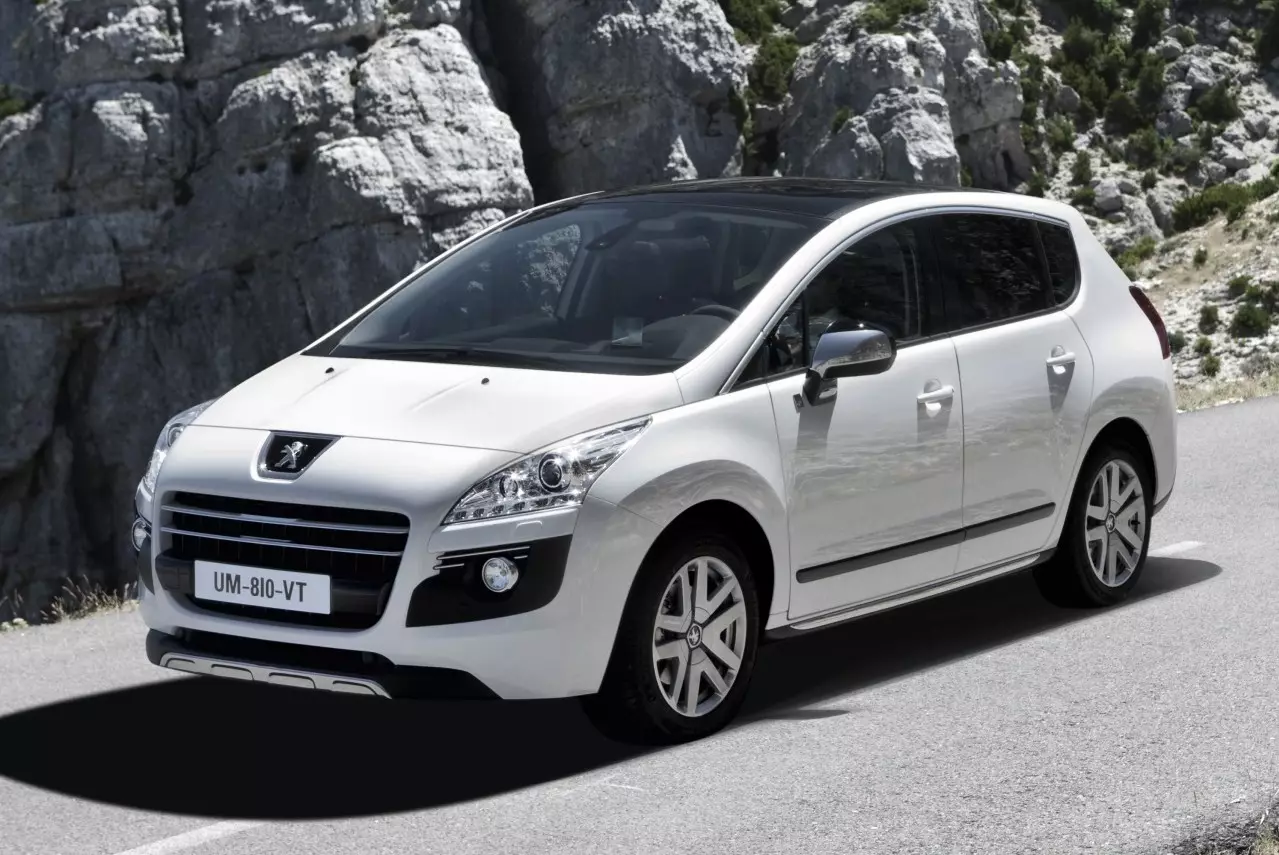
Before Peugeot, the Volkswagen Group had already tried… and failed. The Volkswagen Group's first attempt was truly pioneering. It was 1987 when the Volkswagen Golf Elektro Hybrid concept was introduced. A model that used a 1.6 Diesel engine coupled to an electric motor associated with a semi-automatic box. Twenty test prototypes were built, but high costs and lack of interest in the solution dictated the end of the project.
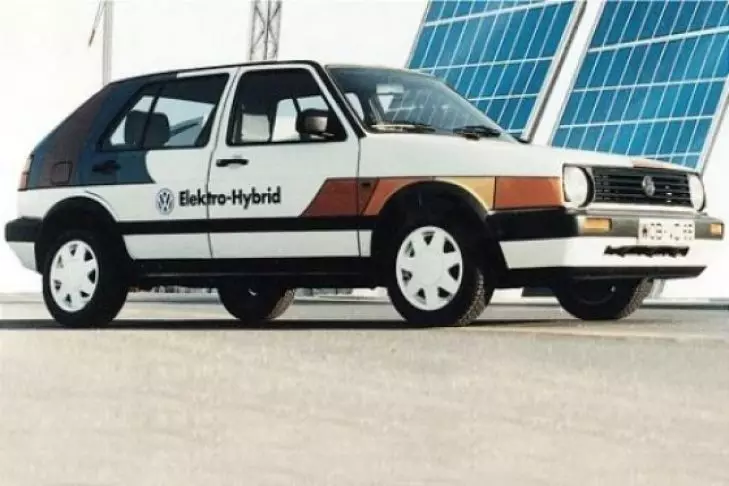
Who remained interested in the technology was Audi, which saw in that technology a lot of potential to tackle the issue of emissions and consumption. In 1989 the brand introduced the Audi 100 Avant Duo, a model in every way similar to the predecessor of the Audi A6 but with an associated electric motor. However, costs once again dictated the project's failure.
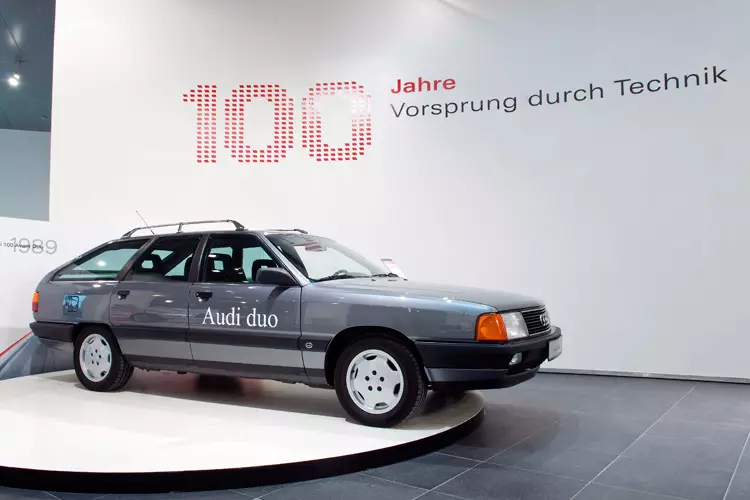
In 1996 — more precisely in October 1996 — Audi returned to the «charge» with the presentation of the second generation of the “Duo”. This time using the platform of the newly introduced Audi A4.
This model used the famous 90 hp 1.9 TDI engine in association with a 30 hp electric motor mounted on the rear axle. The batteries could be charged from a household outlet — a world first in a hybrid Diesel — and had a 100% electric range of over 30 km. Sounds good, doesn't it?
Road tests continued and in September of the following year, Audi presented the “final” version of the Audi A4 Avant Duo in Frankfurt.
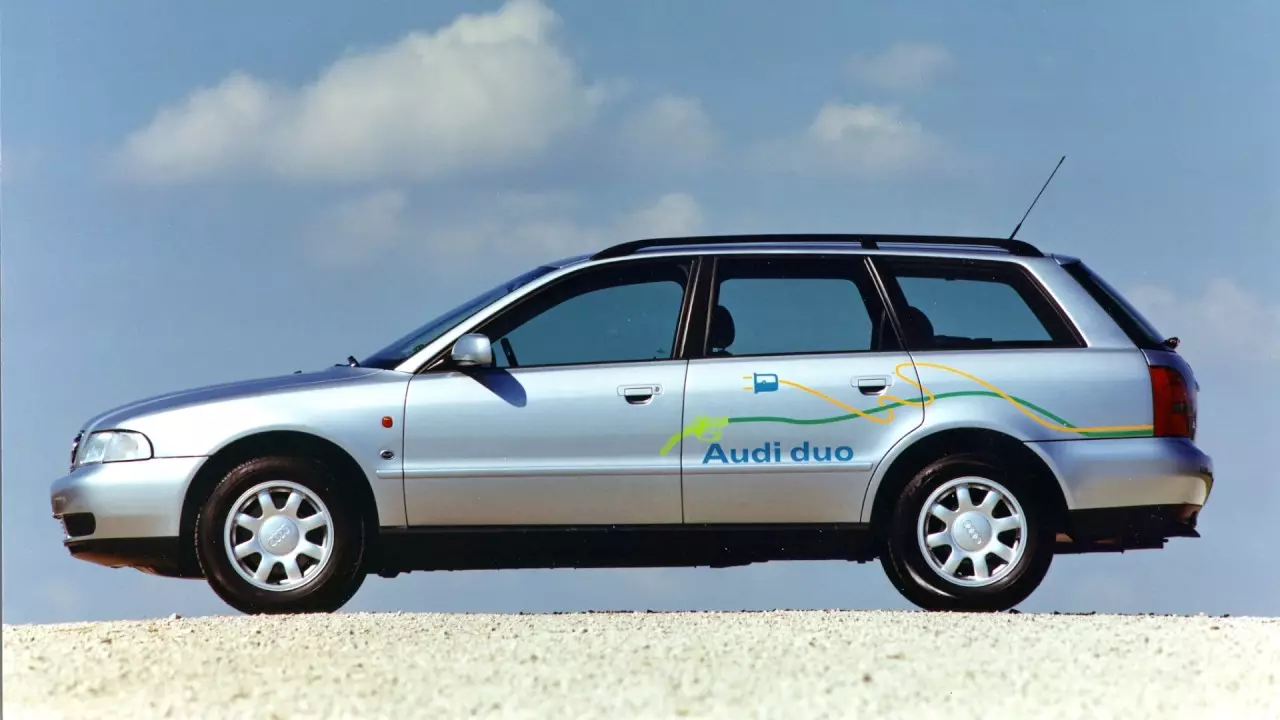
From the perspective of Audi, it had everything to work out… except for the price. The Audi A4 Avant Duo cost twice as much as the regular version. Audi expected to sell 500 units/year but after a few months only 60 units had been produced. Furthermore, the usage reports under “real” conditions were not supportive of the model.
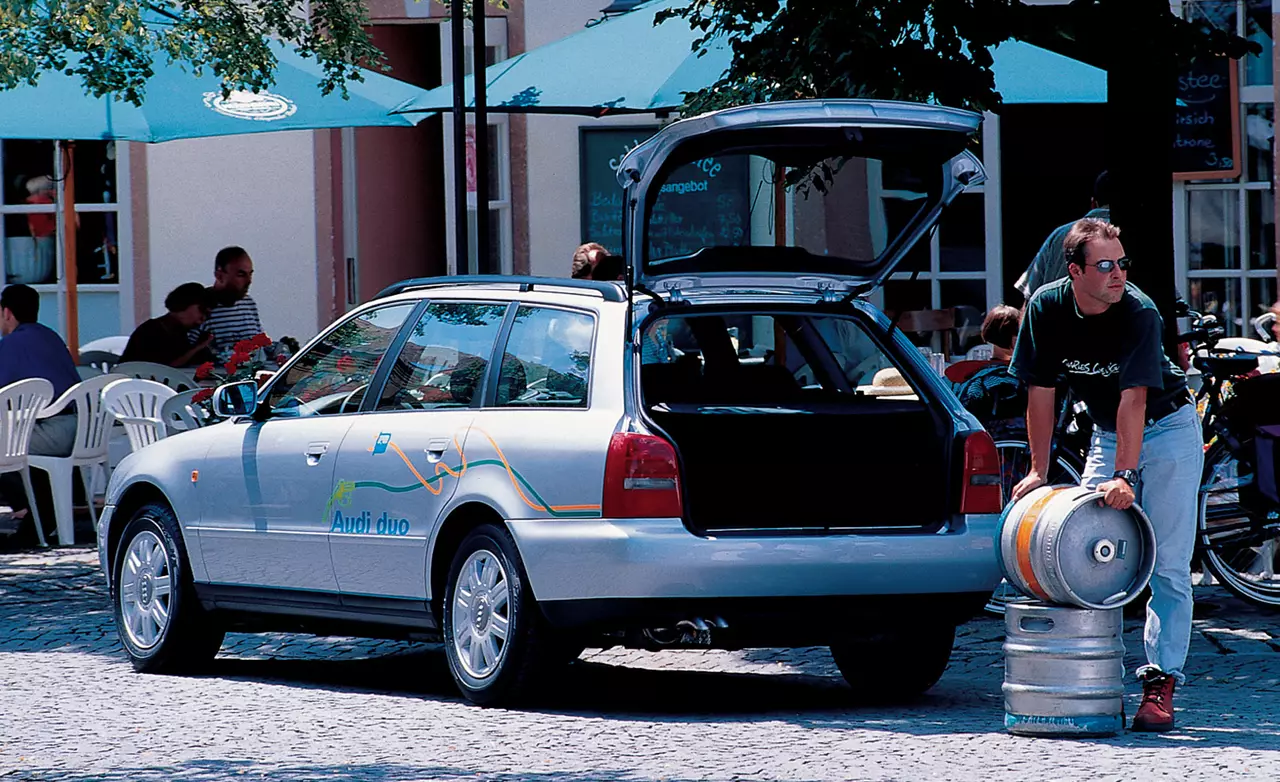
In a few years, when Grupo PSA opens its «history book» — despite the results below expectations… — it won't want to skip the pages dedicated to this technology. The Volkswagen Group will refer its Diesel hybrids to the footnotes, with the exception of one fantastic model: the Volkswagen XL1.
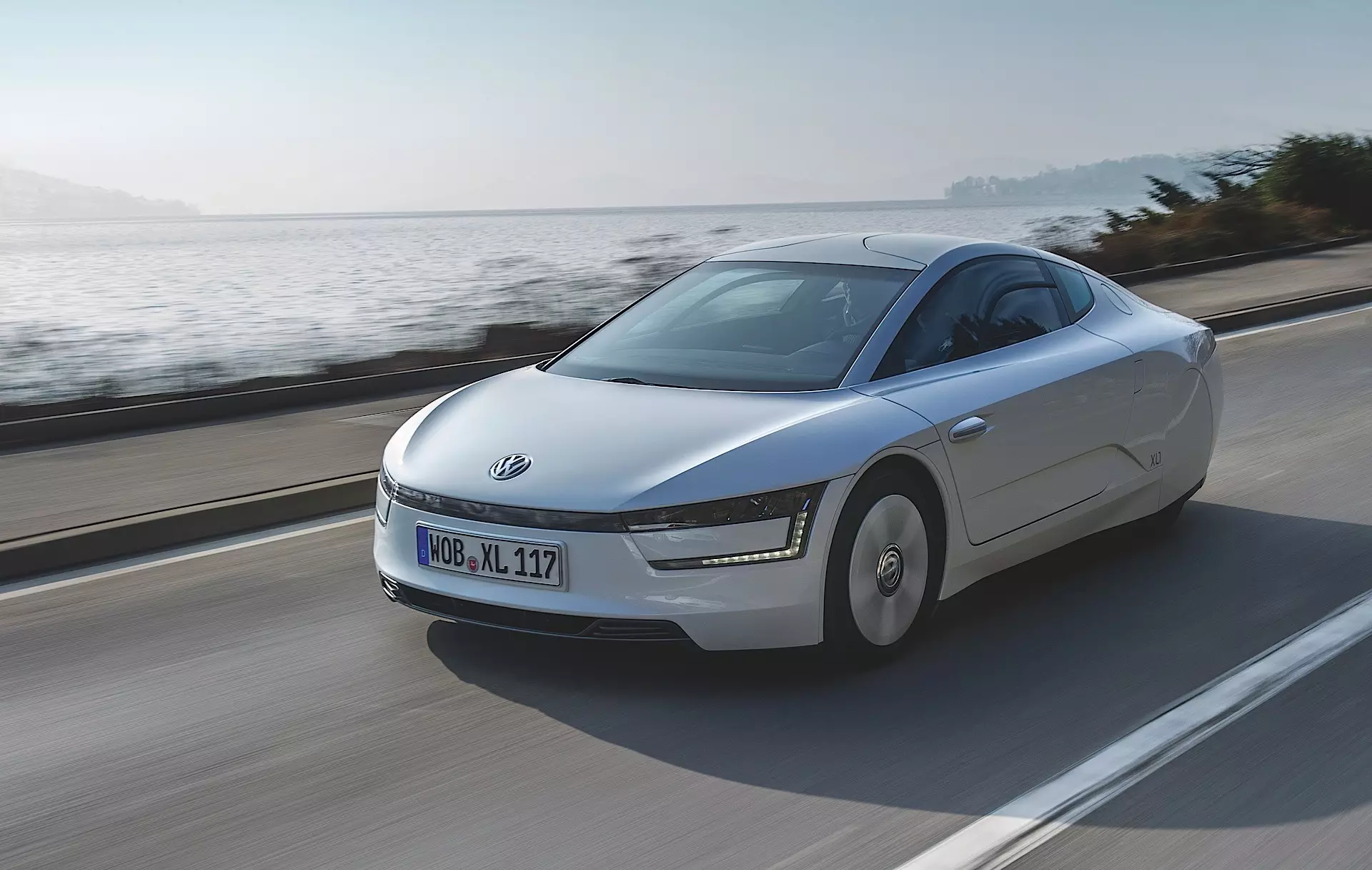
Let me say that the XL1 is one of my favorite Volkswagens — a true 100% functional technological showcase. A version equipped with a Ducati engine — which is owned by Audi — was still in the pipeline, but it ended up not moving forward. It was a pity…
Having made this journey through the past of hybrid Diesels, let's talk about the present.
Volvo and Mercedes-Benz to «attack»
We had to wait 14 years to see the launch of a Plug-in Hybrid Diesel again (after Audi's attempt). The brand responsible for the return of this technology was Volvo, with the V60 D6 Plug-in Hybrid. A model with 280 hp of combined power and very satisfactory performance. Like Peugeot, Volvo also had some success with this model, which was once again hampered by the price and weight of the set. A model that in Portugal, with state support, even gets a nicer price.
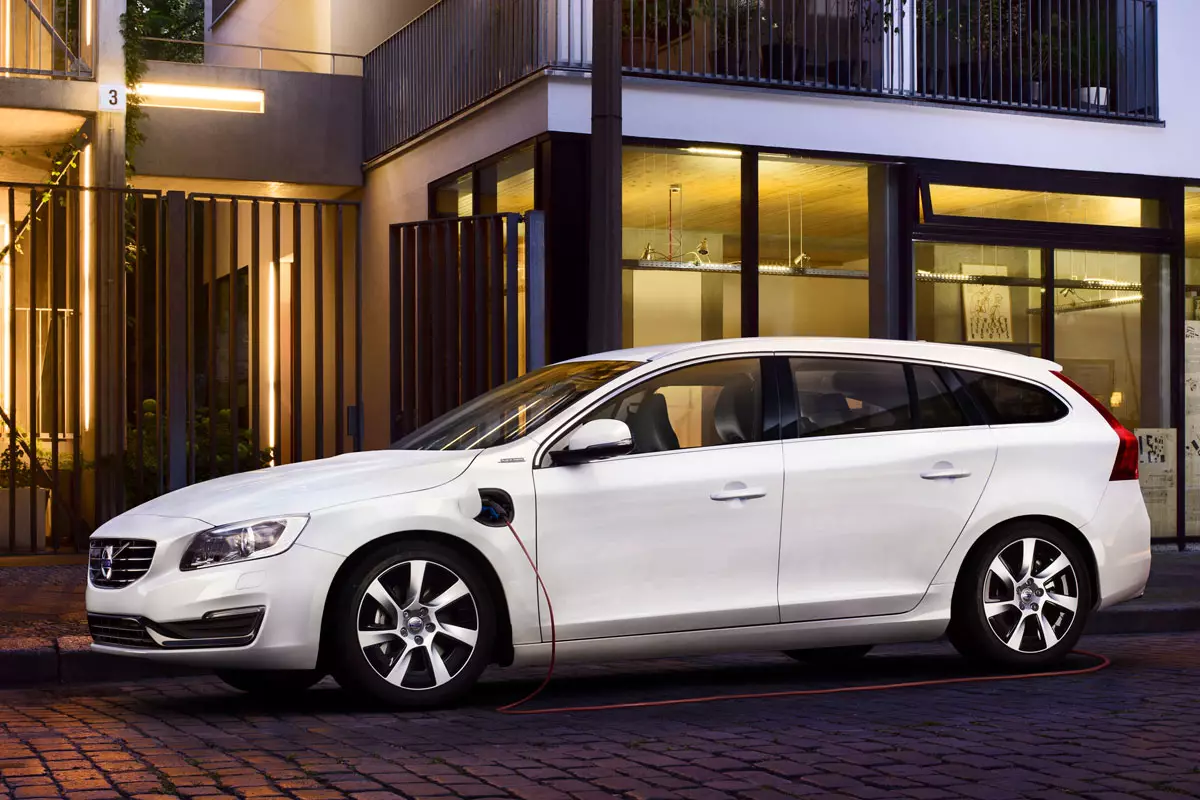
We arrived at Mercedes-Benz. Of all the brands, the one that bets more on hybrid Diesels is currently Mercedes-Benz. The Mercedes-Benz S-Class 300 BlueTEC Hybrid is the best example within the range of the German manufacturer.
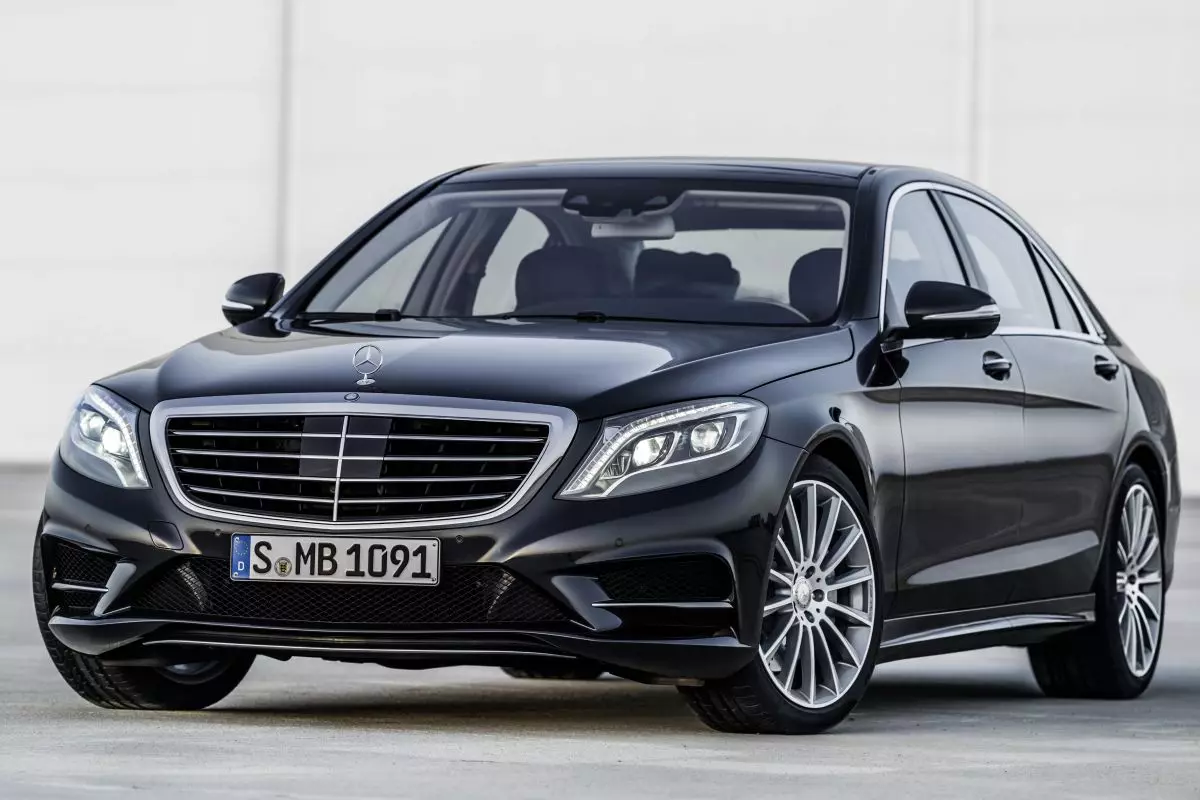
For the first time in history, thanks to this system, it was possible to equip an S-Class with a four-cylinder engine without nipping at the comfort and smooth credentials of the German model — making one forget about the S 250 CDI BlueEFFICIENCY that didn't work out so well. On the other hand, consumption also benefited from this solution that combines a 204 hp diesel engine with a 27 hp electric motor for a maximum combined torque of 500 Nm. Not bad guys…
Despite the 'anti-Diesel' war, the Stuttgart brand continues to invest in these engines due to their low CO2 emissions. A path that is impossible to be replicated by generalist brands due to the costs inherent to technologies for treating the exhaust gases of modern diesel engines. In executive cars the price is important but not the most important.
Still in 2018 we will see other Mercedes-Benz models using this technology, namely the E-Class and C-Class. The Mercedes-Benz A-Class is out of the equation, guess why… exactly: costs! Always costs.
Renault's “half” solution
As we have seen, the association of diesel engines with electric motors in the powertrain is an expensive solution, which can only be diluted in high-end vehicles. Toyota goes a little further in this oppositional position, uncompromisingly advocating the electrification of the automobile with gasoline engines as a starting point whatever the segment.
That said, it remains to speak of the Renault-Nissan alliance. Renault's French, along with Nissan's Japanese, have bet on the spread of electric cars and have developed an ingenious solution to help diesel engines pollute and consume less. It is not a true hybrid, it is rather a mild-hybrid.
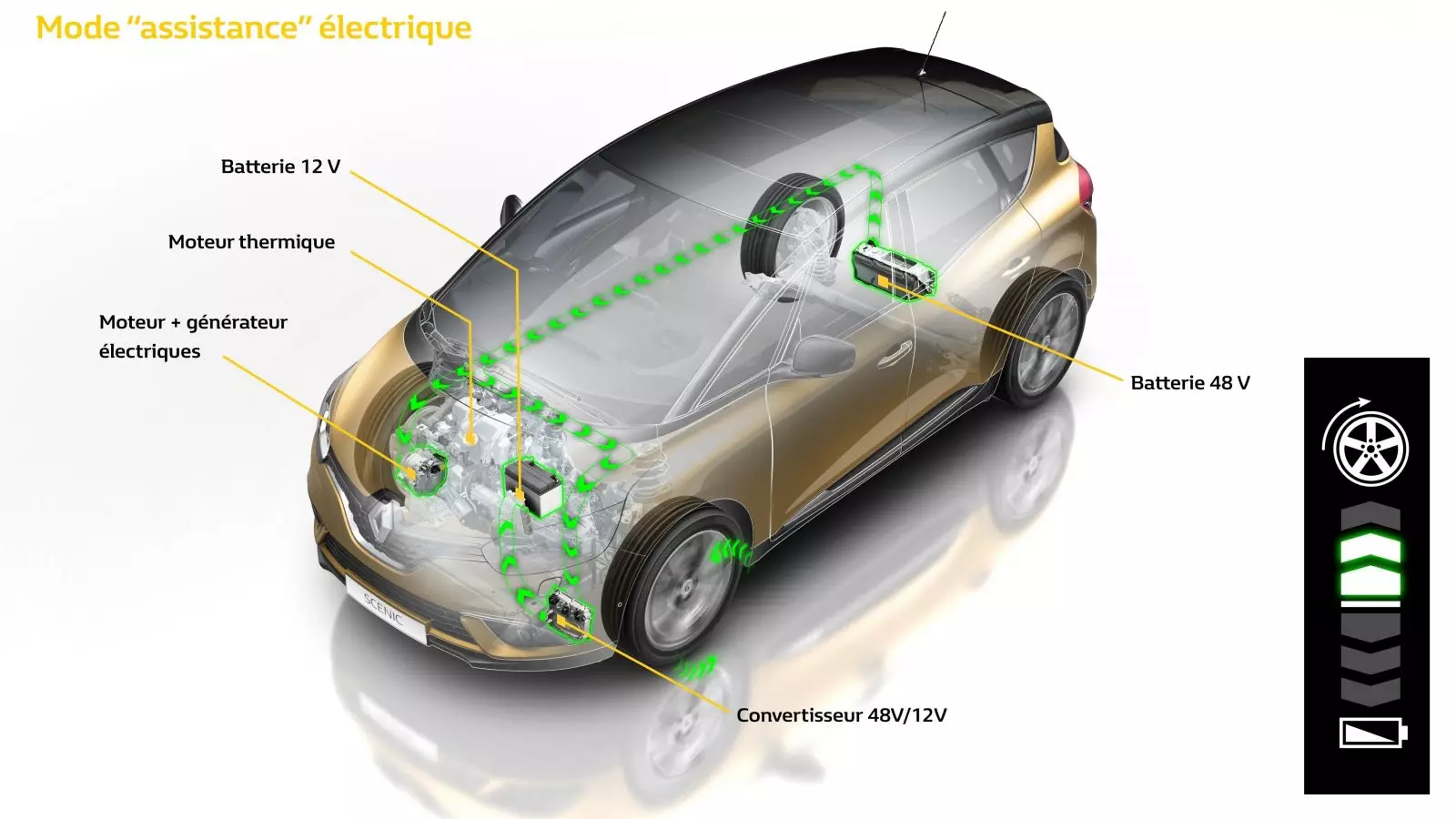
We are talking about the association of the "old man" 1.5 dCi motor with a small electric motor with only 10 kW of power. The first model to take advantage of this technology was the Grand Scénic Hybrid Assist. But with the "squeeze" that the Diesels will suffer at the end of this year, it will certainly not be the last — a squeeze known as WLTP. It is possible that Mégane will also resort to this solution.
Contrary to all the examples given throughout the article, in the case of Renault, the electric motor does not have enough autonomy to play an active role in the vehicle's propulsion. Rather, it is an active auxiliary to the main engine without any direct connection to the transmission — hence the name mild-hybrid (semi-hybrid). It's all explained in this article dedicated to the launch of Renault's Hybrid Assist system. In any case, it is not the only case. The Audi SQ7 is another good example.
Gasoline Hybrid Engines Will Continue To Dominate
In these times of uncertainty about the future of the automobile, which tends towards electrification, there are two certainties. Diesels are doomed in the lower ranges (due to cost), and it will be up to gasoline engines to make the peaceful transition to 100% electric cars. That said, truly hybrid diesel solutions are only viable in the higher segments.
In addition, gasoline engines are becoming more economical and efficient. Added to these factors are the greater running smoothness and silence of gasoline powered engines. That's why the overwhelming majority of brands turn to gasoline hybrid engines.
Take the case of Toyota, with the successful Prius. Or the case of Hyundai, which launched a full range of Ioniq — which we've tested and compared at every level for no doubt. We have Volvo, with its “super” plug-in hybrids, namely the Volvo XC60 and XC90 T8 with powers above 400 hp. The Volkswagen Group, which once made a flagship of its Diesels, is following the same path.
For years to come the Diesels will remain with us — don't fall prey to the alarmism of the most fatalistic. But the truth is, your path is getting narrower.
